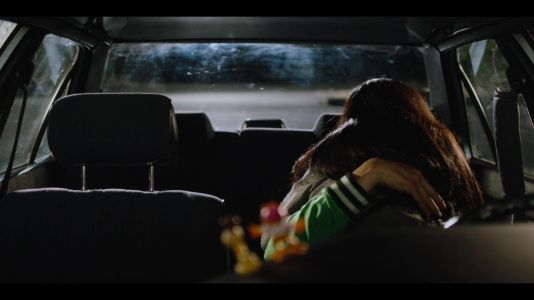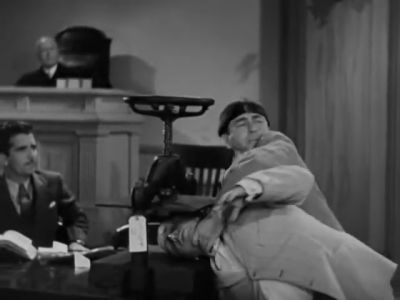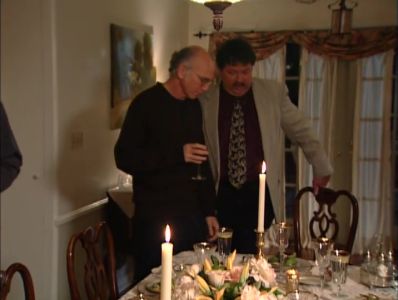Difference between revisions of "BUI301F2022/Humor Theory"
From Screenpedia
Jump to navigationJump to search (added examples) |
|||
| (4 intermediate revisions by the same user not shown) | |||
| Line 1: | Line 1: | ||
| + | ==Theories of humor== | ||
| + | *Superiority theories | ||
| + | *Relief or release theories | ||
| + | *Incongruity theories | ||
| + | |||
| + | <gallery mode="packed" heights=200px> | ||
| + | File:OurHospitalityqq00 03 54qq00013.jpg|alt=Screenshot from ''Our Hospitality''.|''Our Hospitality'' | ||
| + | File:AlwaysBeMyMaybeqq00 07 50qq00007.jpg|alt=Screenshot from ''Always Be My Maybe''.|''Always Be My Maybe'' | ||
| + | File:DisorderInTheCourtqq00 10 39qq00005.jpg|alt=Screenshot from ''Disorder in the Court''.|''Disorder in the Court'' | ||
| + | File:CurbYourEnthusiasmqq00 12 04qq00001.jpg|alt=Screenshot from ''Curb Your Enthusiasm''.|''Curb Your Enthusiasm'' | ||
| + | </gallery> | ||
| + | |||
| + | "Summarizing provisionally one version of the incongruity theory, then, someone is comically amused if and only if | ||
| + | *(i) the object of their mental state is a perceived incongruity, which | ||
| + | *(ii) they regard as neither threatening or anxiety producing nor | ||
| + | *(iii) annoying and which | ||
| + | *(iv) they do not approach with a genuine, puzzle-solving attitude, but which, rather, | ||
| + | *(v) they enjoy precisely for their perception of incongruity." (Carroll, p. 37) | ||
| + | |||
== Texts & resources == | == Texts & resources == | ||
*Noël Carroll, ''Humour: A Very Short Introduction'' (Oxford: Oxford University Press, 2014). | *Noël Carroll, ''Humour: A Very Short Introduction'' (Oxford: Oxford University Press, 2014). | ||
| + | **''Our Hospitality'' (pp. 12-13, 17) | ||
**''Curb Your Enthusiasm'' (pp. 25-26) | **''Curb Your Enthusiasm'' (pp. 25-26) | ||
| − | **'' | + | **''The Three Stooges'' (p. 30) |
**''South Park'' (p. 33) | **''South Park'' (p. 33) | ||
| − | |||
| − | |||
| − | |||
| − | |||
| − | |||
*''Modern Family'' | *''Modern Family'' | ||
| − | |||
[[Category:BUI301F2022]] | [[Category:BUI301F2022]] | ||
[[Category:BUI301F2022 Discussion]] | [[Category:BUI301F2022 Discussion]] | ||
Latest revision as of 19:53, 1 September 2022
Theories of humor
- Superiority theories
- Relief or release theories
- Incongruity theories
"Summarizing provisionally one version of the incongruity theory, then, someone is comically amused if and only if
- (i) the object of their mental state is a perceived incongruity, which
- (ii) they regard as neither threatening or anxiety producing nor
- (iii) annoying and which
- (iv) they do not approach with a genuine, puzzle-solving attitude, but which, rather,
- (v) they enjoy precisely for their perception of incongruity." (Carroll, p. 37)
Texts & resources
- Noël Carroll, Humour: A Very Short Introduction (Oxford: Oxford University Press, 2014).
- Our Hospitality (pp. 12-13, 17)
- Curb Your Enthusiasm (pp. 25-26)
- The Three Stooges (p. 30)
- South Park (p. 33)
- Modern Family



